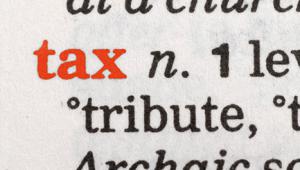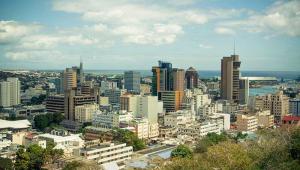European finance ministers have announced their intention to take the nine states off the EU’s ‘blacklist’ and ‘grey list’ of tax havens next week, Oxfam said in a report published yesterday.
Oxfam tax advisor and author of the report Johan Langerock said the EU was “bold” to establish its list of tax havens to help stop tax dodging in December 2017 but since then seemed to have “lost its nerve”.
“European governments appear set to whitewash some of the world’s worst tax havens,” Langerock said.
“The EU must beef up its blacklist or this whole process could be a farce.”
The countries that are likely to be taken off the list include Bahamas, Bermuda, the British Virgin Islands, the Cayman Islands, Guernsey, Hong Kong, the Isle of Man, Jersey and Panama, according to the charity’s analysis.
The analysis looked at whether promises and reforms made by ‘grey-listed’ countries met the bloc’s criteria for being removed from the list or blacklisted.
But Oxfam warned the EU’s assessment criteria ignored “many harmful tax practices”, such as low or zero corporate tax rates, which is the case in the nine tax havens that could be ‘de-listed’.
The EU only considers tax incentives harmful if they give foreign companies or profits an unfair advantage over national firms, the report said.
Five small island states are currently blacklisted, while another 63 countries have promised to reform their tax practices ahead of the review of the ‘grey list’, next week.
The report highlighted that Cyprus, Ireland, Luxembourg, Malta and the Netherlands would appear on the blacklist, if EU member states were not given an automatic exemption, which they are.
Corporate tax dodging costs France, Spain, Italy and Germany an estimated €35bn in 2015, it said.
If this was invested into healthcare, it could cut the amount citizens pay for care by as much as 28%, according to the charity.
“Harmful tax competition is increasing in Europe, but governments refuse to act effectively against tax havens within the EU’s borders,” Langerock said.
“Years of austerity in Europe have widened the gap between rich and poor, contributing to increasingly polarised societies and plunging the EU and its member states into crisis. It is time for EU governments to put their own house in order.”
Oxfam called on EU governments to strengthen the blacklist criteria, ensure political interference is ruled out and monitor tax reforms being implemented by countries on the ‘grey list’ to ensure they are effective.
The report said: “Political interference in the screening process also means that tax havens such as Switzerland and the United States are unlikely to feature on the blacklist – even though both should.”
Multinational companies shifted $600bn in profits to tax havens in 2015 with a third of this going into tax havens in the EU, Oxfam said.
“This deprives rich and poor countries alike of the money they need to invest in poverty-and inequality-busting public services such as healthcare and education,” the charity added.
“Women and girls are hit the hardest, as these services are critical for them.”













